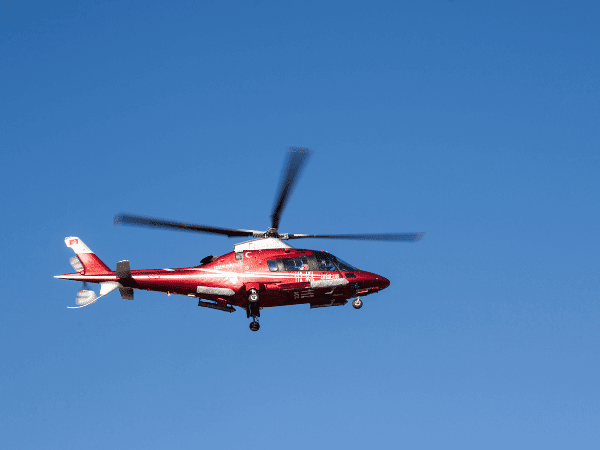In 2021, Congress enacted the No Surprises Act (“NSA”) with two goals of protecting patients from “surprise” medical bills while at the same time ensuring fair reimbursement to out-of-network providers who render medical services. “Surprise” medical bills are those for emergency services furnished by an out-of-network provider or nonemergency services furnished by an out-of-network provider at an in-network facility. A recent ruling by the Federal Court of Appeals, 5th Circuit affirmed a lower court’s undermined of certain aspects of the NSA requirements relating to the process by which an out of network providers are paid for their services.
Until recently, most air ambulance providers were out-of-network health care providers, meaning that they had no affiliation with any health insurance company, and had not negotiated the prices for their services with health insurance companies. This meant that air ambulance providers could charge one price for their services, while health insurance companies would only cover a different (i.e., lower) price. This, in turn, led to “balance billing,” of patients, meaning patients were responsible for the difference between the provider’s price and the amount covered by their health insurer.
Employer Action Items
No action items for employers currently, but the Baldwin Regulatory Compliance Collaborative will continue to monitor the legal landscape and will advise as additional details develop in this and other pending actions related to issues surrounding the implementation and enforcement of the No Surprises Act.
Summary
The case in chief, Guardian Flight LLC vs. Aetna Health Inc. (2024), plaintiff, an air ambulance provider, sued the health insurer for costs related to emergency medical transport. Assigned to arbitration, the matter was resolved consistent with NSA arbitration process, as managed by the independent dispute resolution (“IDR”) provision. The case challenged the arbitration process, which insurers use to resolve payment disputes for surprise out-of-network bills between payers and out-of-network health care providers.
The plaintiff claimed that the arbitration award should be set aside because of the material misrepresentation and illegal presumption in favor of the qualifying covered amount. The Federal Court of Appeals, Fifth Circuit, affirmed a federal trial court’s decision to vacate key portions of the final regulations implementing the surprise billing IDR provisions of the Consolidated Appropriations Act, 2021 (“CAA”, 2021).
The dispute involved the Department of Labor (“DOL”), the Department of Health and Human Services (“HHS”), and the Internal Revenue Service (“IRS”), the tri-agencies responsible for drafting and publication of the interim final regulations addressing, among other things, out of pocket (“OOP”) cost share for the plans using the “qualifying payment amount” ( “QPA”) that was mostly calculated using the health plan’s median in network rate, which is an amount considerably less than the usual fees of these out of network providers.
The district court previously invalidated portions of the plans’ ability to prioritize the QPA over other reimbursement options. The U.S. Federal Court of Appeals, Fifth Circuit affirmed the trial court’s decision to vacate the rule that limited providers from choosing other available reimbursement schemes.
For example, if an out-of-network provider charged $30,000, but a patient’s health plan covered only $5,000, the patient typically owed the out-of-network provider $25,000. These high costs led to the No Surprises Act of 2022, under which patients are protected from the “balance bill” while the air ambulance company and the insurer negotiate a reimbursement in the Independent Dispute Resolution (“IDR”).
This ruling, if upheld, creates a legal conundrum about the elaborate protections the NSA was enacted to provide. The decision in Guardian Flight makes the IDR process illusory, thus leaving providers with no means to collect unpaid charges for services rendered.
Additional Resources
For more information
We’re ready when you are. Get in touch and a friendly, knowledgeable Baldwin advisor is prepared to discuss your business or individual needs, ask a few questions to get the full picture, and make a plan to follow up.
This document is intended for general information purposes only and should not be construed as advice or opinions on any specific facts or circumstances. The content of this document is made available on an “as is” basis, without warranty of any kind. The Baldwin Insurance Group Holdings, LLC (“The Baldwin Group”), its affiliates, and subsidiaries do not guarantee that this information is, or can be relied on for, compliance with any law or regulation, assurance against preventable losses, or freedom from legal liability. This publication is not intended to be legal, underwriting, or any other type of professional advice. The Baldwin Group does not guarantee any particular outcome and makes no commitment to update any information herein or remove any items that are no longer accurate or complete. Furthermore, The Baldwin Group does not assume any liability to any person or organization for loss or damage caused by or resulting from any reliance placed on that content. Persons requiring advice should always consult an independent adviser.
The Baldwin Group offers insurance services through one or more of its insurance licensed entities. Each of the entities may be known by one or more of the logos displayed; all insurance commerce is only conducted through The Baldwin Group insurance licensed entities. This material is not an offer to sell insurance.






